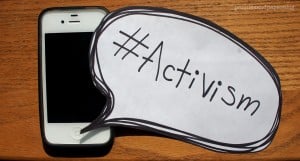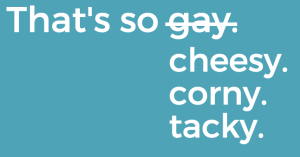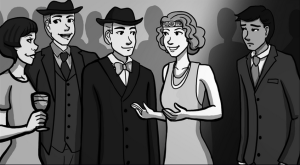
Source: eWeb4
What’s the newest oppressive outrage? These days, with social media to spread the word like wildfire, it’s not hard to find out. It would be harder, in fact, to keep up with all the outrages.
Don’t get me wrong. Things like the Rick Ross debacle and Ani DiFranco’s racist retreat aren’t trivial in the least.
However, as Rob the Idealist asks in this piece: What happens when Reebok fires Rick Ross for lyrics that perpetuate rape culture, yet continues to exploit women with its sweatshop labor?
What happens when Ani DiFranco’s retreat is shut down, yet the plantation she wanted to hold it on continues to profit off its celebration of slavery?
What has changed after the anger dies down and we’ve moved on to the next outrage?
I know that people’s anger comes from a good place. They don’t want to see injustice being perpetuated.
But in my experience, that anger often overshadows one of the core missions of social justice work: to care about and support those who are marginalized.
Yes, we get angry because things like Ani DiFranco’s retreat harm people. However, it’s not enough to get angry only after something misogynistic (or racist, or homophobic, or anything else) happens.
We have to do the extra, harder work of extending our compassion daily to people who are marginalized, so that we can prevent these outrages from happening in the first place.
Anger Is Good, But Not Always
Here’s the thing: For a lot of people, anger is actually a pretty easy emotion to come by. I used to be angry all the time, and in fact, anger is still one of the quickest emotions I arrive at.
It’s especially easy to be angry after something horrible has happened. After all, everyone can agree that things like Ani DiFranco’s retreat are racist and should be condemned.
Love, on the other hand, is a lot more difficult to practice than most people imagine. That’s because love isn’t passive. It’s not the simple absence of hate, nor is it only a feeling of affection. Love is an action.
Love requires that, at times, you put other people ahead of yourself. (Not all the time, though. That would be unhealthy.)
It requires you to understand other people’s needs and to offer them your support even when it’s difficult to do so.
Unfortunately, love is often absent in social justice spaces.
Let me elucidate this.
During college, I was a staff member of an Asian American activist organization. Due to the workload, I rarely went to bed before three in the morning.
I was constantly stressed out about the e-mails I had to answer, the programs I had to coordinate, and the confrontations that I had to face. I skipped class, didn’t do homework, and all too frequently didn’t eat.
All of this was considered normal.
I knew that the other staff members suffered through the same ordeals.
Yet when my mental and physical health deteriorated to the point that I had to announce a hiatus, I was met with resentment instead of understanding.
Nobody asked me if I needed help, even after I said that I was having anxiety attacks. Nobody took my words seriously when I said that one of the male staff members made me feel unsafe.
I later heard that after I left the room, the staff members erupted into criticism of my actions.
One person even tried to guilt me into returning by telling me that there were staff members who were subject to academic dismissal, but still chose to stay. If they could do that, why couldn’t I?
My disillusionment was so great that I never returned to that student organization.
However, I learned something important: It’s easy to care for people when there are meetings to attend, protest signs to wave, and petitions to sign. It’s not as easy to extend support and compassion to those people on a day-to-day basis.
It’s been a long time since that happened. I’m in a better place now, so I’m not writing about this experience to complain or to demand an apology from anyone.
I’m writing about it to demonstrate that as good as our intentions are, we often forget to bring love into our social justice work.
And that needs to change.
What’s Love Got to Do With It?
As I said above, love isn’t passive. It’s something that needs to be actively practiced. While that’s difficult, it’s necessary because we can’t ground our social justice work in only outrage.
We can’t just get angry every time there’s an outrage, then forget about it once there’s something else to fix our attention on.
We have to extend love to the people affected by those outrages so that they aren’t forgotten as well once everyone’s anger has faded.
There’s no comprehensive list on the many different ways in which you can show love in your social justice work. Below are just three suggestions for you on how to extend compassion in your feminist work in particular.
These things might not seem like love, but remember: love isn’t just about feelings, but about concrete, actionable things you can do to care for people.
The following list contains things that I’ve learned from my own experience, and which I try to practice every day.
1. Listen to Women When They Talk
I know this seems obvious, but many people have ignored me when I tried to tell them about my experiences simply because those weren’t the experiences they were familiar with.
Whether we’re feminists or allies, it’s easy to think that we already know everything there is to know and to stop listening to people when they bring up new points of view.
For example, the staff members of my student organization considered themselves invested in the issues of Asian American women.
Yet when I voiced my concerns about the organization, they shut me down. They were uncomfortable with the idea that they could do anything wrong.
In doing so, they ignored the needs of one of the very people they wanted to support.
Remember: Love is putting other’s needs before your own. That means listening to women — even when the things they’re saying criticize you or make you feel uncomfortable
2. Treat Women as the Authority on Feminism
This one’s related to the previous point. You’ve seen all the trending news on Facebook about men like Daniel Radcliffe who’ve stood up for feminism. It’s great that they have.
What’s not so great is how they get much more attention than countless women who’ve said the same things.
These women are talking about their own lived experiences and trying to change their own lives for the better. Why do we find that less admirable than someone recognizing that other people struggle?
You can celebrate Daniel Radcliffe saying something feminist, but don’t treat him as an authority on feminism.
Instead, read the works of feminist women, particularly women of color. Treat them as voices of authority (because they are), and let them take the lead in discussions.
3. Remember That Intersectionality Exists
Remember how I said that people often don’t listen to me because my experiences aren’t what they’re familiar with? Well, that’s because I’m a queer Asian woman, and my experiences aren’t the same as those of straight white women.
But the experiences of straight white women aren’t the experiences of all women. We have to be aware of that — and to stop leaping to judgement if someone’s idea of feminism doesn’t match our own.
In addition, we have to be more critical of what we’re endorsing as feminism.
When we call for the military to be more inclusive of marginalized communities such as queer people and women, we’re supporting a system that wages war on people of color internationally — many of whom are also queer people and women.
Don’t expect your feminism to benefit everyone equally — because it won’t.
And don’t be offended if someone tells you that your feminism can be oppressive. Sometimes, what you’re advocating for can be harmful to somebody else, and bringing love into feminism means acknowledging that.
***
Love won’t singlehandedly erase the oppression that women face, but it can still make a difference. Sometimes it can change things before they erupt into an outrage
After all, it was a lack of intersectional thinking that led Ani DiFranco to think that holding a feminist retreat on a slave plantation — a place where black women were brutally treated — would be a good idea.
Bringing love into feminist work can also help us process our anger and figure out the next steps.
We can and should be outraged by Leelah Alcorn’s suicide and by the abuse she faced at the hands of her family because she was transgender.
But we should also begin the hard work of listening to trans women who are still alive, and of examining the transmisogyny within ourselves and our communities.
We can and should be outraged at Hugo Schwyzer because he’s an abuser. But we should also ask ourselves why we only recognized this after he had a public meltdown.
He’d been abusing women, primarily women of color, for years. We can’t blissfully gloss over the fact that those women of color were silenced by white feminists.
What I’m trying to illustrate with these examples is that practicing the three things I listed can affect change. If we listen, put women’s voices first, and are intersectional, we can change the situations that led to these outrages in the first place.
I’m not claiming that love can end misogyny or any of the other terrible things that plague our world.
I’m just saying that your feminist work won’t accomplish much if you’re going to ignore women, push them to the background, or reject their experiences because they don’t align with yours.
So let’s bring love, not just anger, into feminist work. By doing so, we show care and compassion to people who not only don’t receive it, but are actively denied it by a system that devalues their very lives.
And that, I think, is quite revolutionary in and of itself.
[do_widget id=”text-101″]
Kerry Truong is a Contributing Writer for Everyday Feminism. They are a queer diasporic Vietnamese womxn and graduated this spring with a double degree in English and Asian American Studies. When they’re not philosophizing about this at length, they’re reading, taking long walks, or cooing over all the dogs who cross their path. Read their Everyday Feminism articles here.
Search our 3000+ articles!
Read our articles about:
Our online racial justice training
Used by hundreds of universities, non-profits, and businesses.
Click to learn more




















